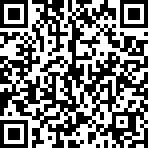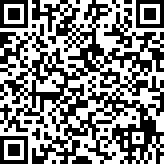 |
Editorial
Telepsychiatry—Potential solution to a global issue
1 Little Prince Treatment Centre, Copenhagen, Denmark
Address correspondence to:
Davor Mucic
MD, Launcher of EPA’s Telemental Health Section (European Psychiatric Association), Re-launcher and Board Member of WPA’s Section on Informatics (World Psychiatric Association), Copenhagen,
Denmark
Message to Corresponding Author
Article ID: 100005P12DM2021
Access full text article on other devices

Access PDF of article on other devices

How to cite this article
Mucic D. Telepsychiatry—Potential solution to a global issue. Edorium J Psychiatry 2021;3:100005P12DM2021.ABSTRACT
No Abstract
Keywords: COVID-19, Global regulations, International telepsychiatry, Telepsychiatry
Editorial
With the onset of COVID-19, mental health services around the globe experienced their own vulnerability and limitations. Patients with mental illnesses are still triggered by social distancing, isolation, and the loss or fear of losing their jobs. They become more anxious, angry, stressed, agitated, and withdrawn during the pandemic outbreak or whilst in quarantine [1]. A systematic review of data both from scientific and non-scientific sources in several languages from 28 countries found numerous reports of deteriorations in symptoms, of impacts of loneliness and social isolation and lack of access to services and resources [2].
The pandemic led to a drastic reduction in levels of care in community mental health centers and general hospital psychiatric wards [3], including treatment refusal by the patients, difficulty complying with safety precautions due to psychosis, agitated behavior, and problems with staff psychological well-being [4].
Many patients currently avoid hospitalizations due to fear of corona contamination. Nevertheless, they still need professional help. In such situation “Home-Telepsychiatry” model may offer continuous psychological support and necessary medical treatment despite isolation and quarantine.
Telepsychiatry (TP) is the oldest of all e-mental health applications, with its first appearance in 1959. Unfortunately, its adoption in daily practice prior to the pandemic has not resonated with mental health professionals worldwide. Potential reasons might have been the lack of expertise, as well as difficulties in changing well established daily routines. Furthermore, regulatory issues have undoubtedly kept TP from being widely adopted. Although such advances have been slow, patients have repeatedly expressed high level of satisfaction and comfort by remote consultations. Telepsychiatry has certainly shown its potential during the current pandemic so far [5],[6].
COVID-19 pandemic is undoubtedly a turning point for TP worldwide. Its development is partially dependent on policymakers’ insight and willingness to act promptly. Further obstacles are overall lack of expertise and/or clinical experience. The benefits of increased access to remote services are apparent for TP, but benefits can only be realized if the tools are used by clinicians who have the appropriate training and guidance related to the selection of video tools as well as their proper use. Clinicians must develop the relevant skills and competencies needed to perform assessments and treatments.
The regulatory constraints are still posing significant barriers to a broader adoption of TP in a globalized world. Current local regulations make it difficult for many to receive needed care that otherwise would be possible thanks to the technology.
International psychiatric associations, i.e., World Psychiatric Association (WPA), European Psychiatric Association (EPA), American Psychiatric Association (APA), etc., are perfectly positioned to be the frontrunners in the promotion and further development of TP worldwide. The first important step is the publication of WPA’s “Telepsychiatry Global Guidelines” in February 2021 [7].
WPA guidelines come with recommendations to:
- Video equipment producers: to improve data and patient safety features of currently unsafe but widely adopted applications. Crucial improvements are inter-operability and intercompatibility of the video tools. Improved intercompatibility will remove current barriers to communicating with each other across brands and types of video equipment.
- Policy makers are encouraged to start the work of creating uniform licensing rules, first regional and then global.
- Clinicians must develop the relevant skills and competencies needed to perform assessments and treatments using a wide range of video conferencing equipment, each with different features and related benefits and limitations. Therefore, competency training in digital mental health is the priority number one for the clinicians.
We hope that the Guidelines will pave the way for improved international cooperation, not only by clinicians but also by decision-makers, and inspire them to take a step toward unifying rules and global regulations in order to break down the barriers of accessibility for the professionals as well as for the patients worldwide.
Innovation comes from limitation. Nevertheless, recognizing the problem is the first step toward a solution. It is not too late to make a difference and improve access to qualified care for those who are most vulnerable in these very challenging times. We have never before been presented with a tool that requires so little while in return it gives us as much as is the case with TP. The future is to discover whether changes during the pandemic have affected our way of thinking and acting permanently or only temporarily. As major players in mental health systems around the world, professionals have the chance to turn the current pandemic into an opportunity to improve the quality of care and do better for both patients and themselves. In addition to professionals, decision-makers have the opportunity to make the necessary legislative changes that allow for international cooperation and exchange of expertise regardless of geographical distance. Accordingly, the patients have a chance to receive the care they deserve in the 21st century. We must not return where we were yesterday.
REFERENCE
1.
Torales J, O’Higgins M, Castaldelli-Maia JM, Ventriglio A. The outbreak of COVID-19 coronavirus and its impact on global mental health. Int J Soc Psychiatry 2020;66(4):317–20. [CrossRef]
[Pubmed]

2.
Sheridan Rains L, Johnson S, Barnett P, et al. Early impacts of the COVID-19 pandemic on mental health care and on people with mental health conditions: Framework synthesis of international experiences and responses. Soc Psychiatry Psychiatr Epidemiol 2021;56(1):13–24. [CrossRef]
[Pubmed]

3.
Carpiniello B, Tusconi M, Zanalda E, et al. Psychiatry during the Covid-19 pandemic: A survey on mental health departments in Italy. BMC Psychiatry 2020;20(1):593. [CrossRef]
[Pubmed]

4.
Mahgoub N, Agarkar S, Radosta M, et al. Inpatient psychiatry unit devoted to COVID-19 patients. Compr Psychiatry 2021;107:152237. [CrossRef]
[Pubmed]

5.
O’Brien M, McNicholas F. The use of telepsychiatry during COVID-19 and beyond. Ir J Psychol Med 2020;1–17. [CrossRef]

6.
Haxhihamza K, Arsova S, Bajraktarov S, et al. Patient satisfaction with use of telemedicine in University Clinic of Psychiatry: Skopje, North Macedonia during COVID-19 pandemic. Telemed J E Health 2021;27(4):464–7. [CrossRef]
[Pubmed]

7.
Mucic D. Telepsychiatry Global Guidelines. WPA 2021. [Available at: https://3ba346de-fde6-473f-b1da-536498661f9c.filesusr.com/ugd/e172f3_19ce700c2a1f484b98efdcaf02c3c6ff.pdf]

SUPPORTING INFORMATION
Author Contributions
Davor Mucic - Conception of the work, Design of the work, Drafting the work, Revising the work critically for important intellectual content, Final approval of the version to be published, Agree to be accountable for all aspects of the work in ensuring that questions related to the accuracy or integrity of any part of the work are appropriately investigated and resolved.
Guarantor of SubmissionThe corresponding author is the guarantor of submission.
Source of SupportNone
Consent StatementWritten informed consent was obtained from the patient for publication of this article.
Data AvailabilityAll relevant data are within the paper and its Supporting Information files.
Conflict of InterestAuthor declares no conflict of interest.
Copyright© 2021 Davor Mucic. This article is distributed under the terms of Creative Commons Attribution License which permits unrestricted use, distribution and reproduction in any medium provided the original author(s) and original publisher are properly credited. Please see the copyright policy on the journal website for more information.


